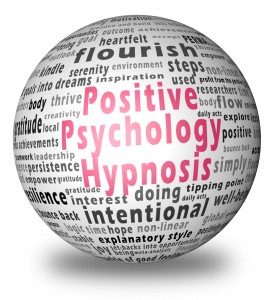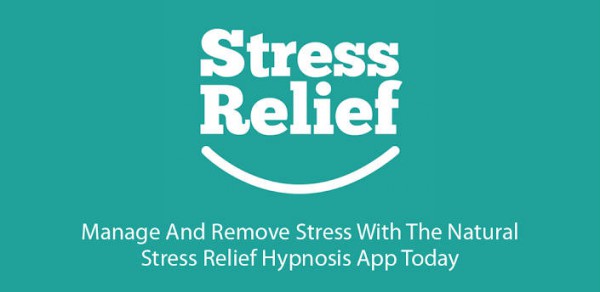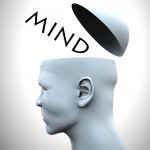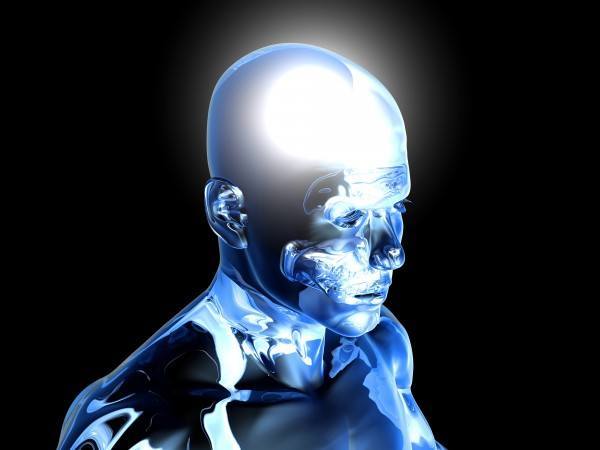Hypnotherapy is a form of communication where the therapist puts down your consciousness to a dream condition, and at the same time, the level of your subconsciousness is increased. In the hypnosis stage, you are falling asleep and waking up in control of the hypnotherapist, and by his silently spoken words. In this balanced stage, a hypnotherapist is capable of communicating with you through the conscious mind with the subconscious mind.
In other words, this happens when your consciousness agrees with your subconsciousness. When the session is over, a hypnotherapist will bring back to normal your full consciousness and your body function. In that short period of discussion, the therapist will ask essential questions to solve the specific problem.
Everybody has suffered from many stressful situations, trauma, or diseases due to their problems. Today, these problems are easily solved at the hypnotherapist’s office. These hypnotherapists are competent medicine men full of care, comprehension, and empathy. They bring to light the so-called hypnotherapy process which is in fact, a type of psychotherapy. When you face some of the above-mentioned situations, the first step is to make your choice and see a hypnotherapist.
The hypnotherapist will listen to your problems and according to the expressed dilemmas and symptoms will create ideas for overcoming and solving them. In addition, he will not form a negative opinion or attitude toward you and your problems. The hypnotherapist starts a hypnotic condition in the client to increase the motivation or to change manifestation through hypnosis.
The therapy itself lasts from 4 to 6 sessions or more, according to the hypnotherapist’s opinion. During your treatment, you will be comfortable in a bed or chair where you can speak openly about yourself, your problems, stress, and trauma. Of course, do not worry because you will not be laughed at judged, or rejected. Only if you are relaxed and secure completely, will you be able to go under the hypnosis of the hypnotherapist.
The session number is not limited but determined according to a competent person’s judgment and the improvement of your state.
Hypnotherapy – Treatment of Diseases and Disorders
Modern hypnotherapy is widely spread in treating:
- Depression;
- Stress;
- Anxiety disorder;
- Eating disorders;
- Sleep disorder;
- Panic disorders;
- Bipolar disorder;
- Personality disorder;
- Autoimmune disorder;
- Conversion disorder;
- Skin disorders;
- Parkinson’s disease;
- Alzheimer’s disease;
- Lyme disease;
- Heart disease.
Hypnotherapy is used to create unconscious change in the patient in the form of new answers, opinions, attitudes, manifestations, and feelings through hypnosis. When a man is under hypnosis shows unusual characteristics and interests compared to a non-hypnotized condition. He shows suggestions and responsibility. That is why hypnosis is used for:
- Weight loss;
- Quitting smoking;
- Success;
- Pain;
- Addiction;
- Motivation.
Among all these disorders, depression and stress are the most frequent forms of the disorder. That is why these two will be dealt with further.
 Hypnotherapy for Depression
Hypnotherapy for Depression
Each of us has felt that sense of worry and anxiety for a lifetime. These two are completely normal reactions to daily pressure. However, these can have an immense influence on your daily routine. That can bring you down to depression. This long-term condition can turn into an anxiety disorder. The following are depression symptoms:
-
- Anxiety;
- Fear;
- Loss of concentration;
- Irritability;
- Impatience;
- Dizziness;
- Lethargy;
- Rapid breathing;
- Blood pressure;
- Headache;
- Frequent urination;
- Dizziness;
- A feeling of fatigue;
- Excessive sweating;
- Difficulty sleeping;
- Decreased appetite;
- Vomiting.
When you suffer from depression, anxiety, and panic attacks, the therapist prescribes you anti-depression pills. But, what happens when the therapy is over? You have back all intensive feelings of anxiety and panic and you are at the beginning again. This will alienate your tension only temporarily. To put down to zero your problem, you need hypnosis for that very purpose.
In cases of depression, the main diagnosed problem is anxiety. For instance phobias, post-traumatic syndrome disorder, or generalized anxiety disorder.
How Hypnosis and Hypnotherapy Can Help? If you have mild anxiety related to some event to come or something similar, hypnosis combined with therapy can afford you to reduce your worries and anxiety. This combination can afford you also, more self-control, self-confidence, and a higher level, and high-ranged image of yourself as a person. An additional bonus is that – hypnosis relaxes magnificently and reduces the stress level in your body.
Hypnotherapy for Stress
Stress is a kind of feeling when you are under intense pressure. This pressure can be caused by many segments of life i.e. conditions or individuals. The stress symptoms are:
- Fatigue;
- Headaches;
- Weight loss or gain;
- Pounding heart;
- Chest pains;
- Nervous;
- Depression;
- Mood changes;
- Irritable;
- Negative thinking;
- Confusion;
- Forgetfulness;
- Lack of interest;
- Loss of concentration.
Patients can be highly stressed, mildly, or non-stressful. Hypnosis or hypnotherapy is applied to the patient according to the condition that the patient is in and the level of capability of the patient to handle stressful situations.
Hypnosis for natural stress relief. It is a powerful alleviation from stressful situations due to many factors in life. Besides the fact that stress can cause disorders of any type in your life, it can decrease your self-confidence, which can furthermore result in depression and easy irritation. To overcome stress, it is not enough only to take medicine for stress relief. Hypnotherapy is necessary. By hypnosis, you can reduce stress but also rule it, while learning skills for inner relaxation.
Hypnosis can have many positive results. Scientists claim that people use only 10% of their potential conscious mind and the rest 90% goes to our subconscious level. Therefore, through hypnosis and the subconscious mind, one can get rid of habits and problems, and replace them with positive changes in his lifestyle.
Hypnosis for anxiety and stress is very effective in the “washing of the brain” process. It is a therapeutic medium for reducing stress, anxiety, pain, insomnia, irritable bowel syndrome, and migraines – a presentation for improving motivation and self-confidence build-up.
Hypnosis for stress reduction is a structured program that includes meditation to reduce suffering from physical, psychosomatic, and psychiatric disorders. In the mental process, the development of improved awareness must happen, but also negative influence reduction. Furthermore, improving vitality and handling of problems will be another effect.
Exam stress to exam success with hypnotherapy. Decrease the panic level. Too much panic, stress, and anxiety can move our focus from everyday activities, which can de-motivate us and convey negative thoughts. In that case, a hypnotherapist helps us handle our memory, problems, and self-confidence. Hypnotherapy controls our mental condition and emphasizes our capabilities. Through hypnosis, our mind accepts positive suggestions and changes our way of thinking and behavior in a positive way. Relaxed mind – confident mind.
Traumatic stress and the reasons for, its appearance vary. By hypnotherapy, the real reason can be detected, for instance, a loss, change, conflict, etc., the brain cannot distinguish between real and plastic stress i.e. what we think that has happened and what HAS HAPPENED.
Counseling and hypnotherapy are suitable therapy. Hypnotherapy is effective in stress handling. By changing reactions in a particular situation during the hypnosis process, feelings for that situation can turn into positive ones and the reaction is also, often changed.
Hypnotherapy cures many other disorders, such as:
An eating disorder is a disorder in nutrition manifested by abnormal habits related to food intake, such as a lack of food intake or excessive food intake. This can be very harmful to one’s physical and mental health. Bulimia and Anorexia are the most often nutritive disorders.
Does hypnotherapy for eating disorders work? Yes, it does! Through suitable treatment and hypnosis, the reason for this disorder can be revealed and the unpleasant consequences can be reduced or put down to a minimum. Hypnosis and meditation can be the ornament of any recovery program.
Sleep disorder is a disorder in your sleep time, as the term itself implies. There are two forms of sleep disorder: Insomnia and Hypersomnia. By sleep disorder, negative effects on your health can appear which can furthermore result in anxiety and depression. The therapist will detect the problem and will solve it through hypnosis.
Panic disorder is different from ordinary fear and anxiety reactions caused by stressful situations in a lifetime. This gravid state happens without reason and suddenly. Panic disorder symptoms include sudden fear attacks and nervousness attacks, but physical symptoms such as sweating and a racing heart. During panic attacks, fear is a response to the situation, which is not a problem the first time.
As time passes by, the panic attack person develops a constant fear of another panic attack appearance. This can ruin your everyday life balance and the general quality of your life. Panic disorder usually goes along with other serious conditions such as depression, alcoholism, or drug abuse. If you are wondering, whether hypnotherapy and hypnosis help here – the answer is positive – again!
Bipolar disorder is a mental disease-mania, i.e. seismic episodes of depression or an abnormal state of happiness. Bipolar disorder, also, known as bipolar affective disorder, manic depression, or manic-depressive deserver. This state can ruin the capability of the individual to function in everyday life.
Hypnotherapy is the best and most effective access in bipolar disorder problem-solving. Mind, body, and spirit are in the focus. The result is positive and the patient can in a short time control his mood changes. There are stereotypes and prejudice against individuals with bipolar disorder.
A personality disorder is a state where a person immensely distinguishes himself from others in terms of how he thinks, feels, or relates to others. These people can be:
- Avoidant;
- Narcissistic;
- Multiple.
The key problem in each of these cases can be revealed.
 Autoimmune Disorder is especially sensitive to hypnosis. What the mind can imagine, it can also create. Positive thoughts result in positive actions; Negative thoughts result in negative acts. The body expresses the creation of Mind-Spirit-Emotion. If the mind and thoughts create stress, the body will react with inflammation acute trauma, and/or pain.
Autoimmune Disorder is especially sensitive to hypnosis. What the mind can imagine, it can also create. Positive thoughts result in positive actions; Negative thoughts result in negative acts. The body expresses the creation of Mind-Spirit-Emotion. If the mind and thoughts create stress, the body will react with inflammation acute trauma, and/or pain.
The key problem will be pointed out through hypnosis by the hypnotherapist.
Conversion disorder is “The Modern Hysteria”. The diagnosis of this disorder is that patients suffer from neurological symptoms such as numbness, blindness, and paralysis. Symptoms appear as a response to stressful situations that affect a patient’s mental state. Patients suffer from weak nerves and meaningless disturbances. It is categorized as a somatoform disorder, body dimorphic disorder, and hypochondriasis or pain disorder. This disorder is usually called pseudoseizures, i.e. The Hysteria Phenomenon.
This disorder is cured with a few treatments such as cognitive behavioral therapy, hypnosis, and psychodynamic psychotherapy.
The skin disorder is a chronic skin disease. It cannot be cured totally, but a lot of attention is paid to symptoms, treatments, and ways to feel better. Here we can list Eczema, Psoriasis, Acne, and Rosacea. You must take care of skin picking, compulsive skin picking, and skin conditions. Usually, stress causes these disorders. Of course, Her Highness – Hypnotherapy can help you with this problem.
Drink a glass of water or lemon water after the session.
Does Hypnotherapy Work?
Officially, it is proven that hypnosis influences the brain and the general condition of the human organism. That is why hypnotism has already taken its place as an essential segment of medical science.
The number of hypnotherapy success stories around the world is a confirmation of hypnosis’s importance.
Hypnotherapy Advantages and Disadvantages
The advantages of hypnotherapy are the following: It does not include medical substances; It is not expensive and it is short, compared to any other therapy. It has no negative effects and provides you with self-respect, build-up, and self-confidence improvement. However, hypnotherapy has some disadvantages: when sessions are longer than usual patients take them for ineffective; when patients think that the changes are not suitable for their mind; you cannot see your favorite hypnotherapist when you wish to – (they are already deficient in their profession).
Hypnotherapy Dangers and Complications
Hypnosis generally is taken as a safe procedure. However, in some cases, it can result in unpleasant effects and complications. Those are unexpected, non-desired thoughts, feelings, or behavior during or after hypnosis. Then hypnotic process mixes with optimal mental functioning. Non-desired effects can be expected in cases of:
- Non-professional use of hypnosis;
- Killing the symptoms by direct order or non-intentional suggestions;
- Non-intentionally gave a hypnotic suggestion;
- The psychotic symptoms or acute panic attacks;
- Condition of depression with suicidal behavior;
- Symptom substitution;
- Masking of physical pathology.
Is Hypnosis Effective?
Hypnosis with many adjusted sessions is probably one of the most efficient ways to make the desired change just in time. Besides, that change can improve our way of life. A great study has shown that hypnosis and hypnotherapy are effective methods of curing diseases. By hypnosis, many problems such as smoking cessation, substance abuse, weight loss, phobia, depression, and anxiety have been solved. The American Society of Clinical Hypnosis as follow summarized these results:
- Home Study Self-Hypnosis: 2 – 5% success rate;
- Group Hypnosis Session: 2 – 5% success rate;
- Single Individual Session: 17 – 20% success rate;
- Three Individual Sessions: 45 – 50% success rate;
- Five or More Individual Sessions: 85 – 90% success rate.
According to research, hypnotherapy has notable success compared to other therapeutic methods. See the following:
- Psychoanalysis: 38% recovery after 600 sessions;
- Behavior Therapy: 72% recovery after 22 sessions;
- Hypnotherapy: 93% recovery after 6 sessions.










